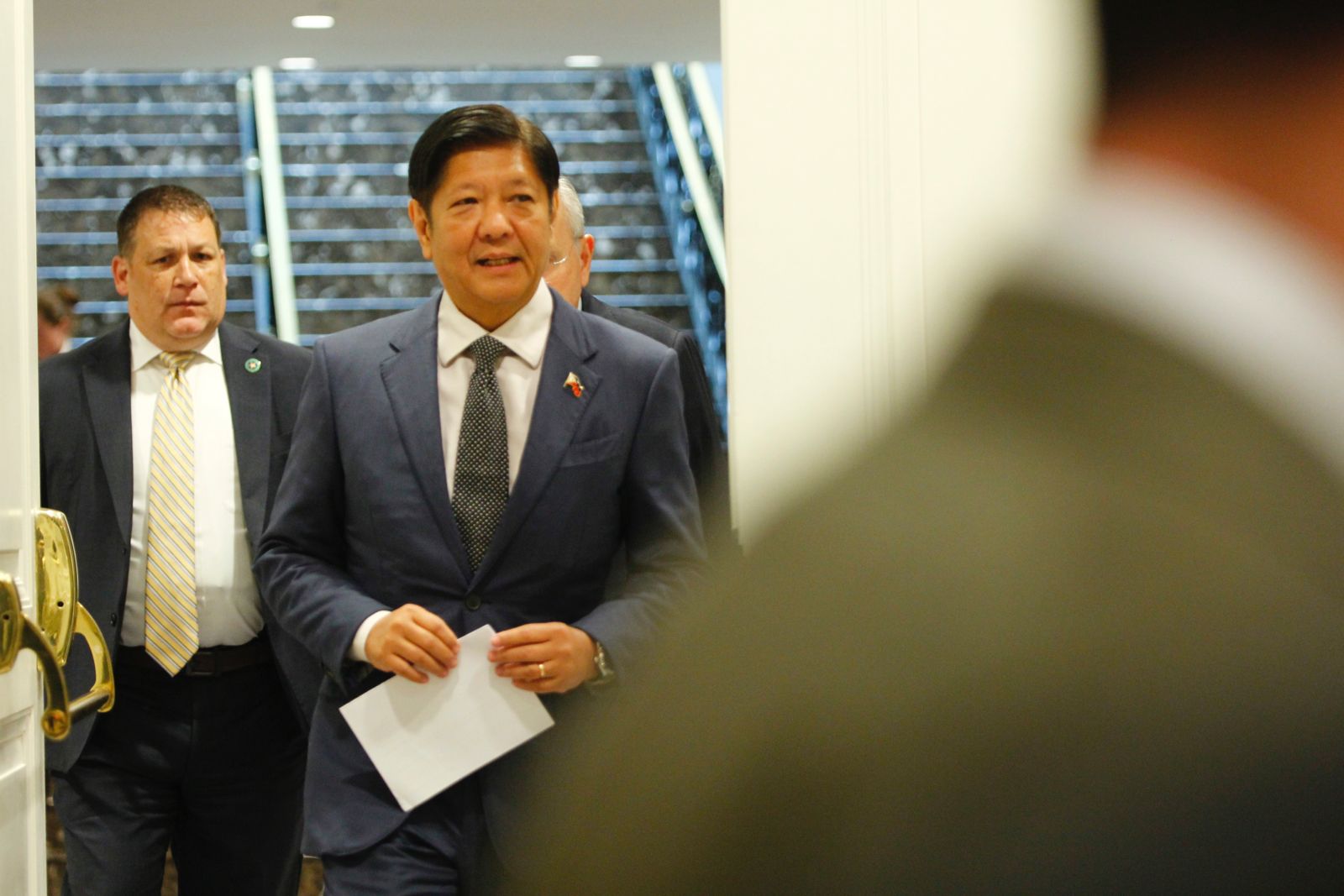PH leader sees trilateral deal changing SCS dynamic

President Ferdinand Marcos Jr. walks toward a room in a Washington DC hotel, for a press briefing with members of the Philippine media delegation on April 12, 2024. Marcos addressed questions about the alleged gentleman’s agreement between China and former president Rodrigo Duterte, which he called a secret deal, during the press conference. GABRIEL P. LALU/INQUIRER.NET
WASHINGTON, DC/MANILA, Philippines — A cooperation agreement by the Philippines, the United States and Japan will change the dynamic in the South China Sea (SCS) and the region, President Ferdinand Marcos Jr. said on Friday, even as he sought to assure China it was not a target.
“I think the trilateral agreement is extremely important,” Marcos told a press conference in Washington a day after meeting US President Joe Biden and Japanese Prime Minister Fumio Kishida in the first trilateral summit among their countries.
“It is going to change the dynamic that we see in the region, in Asean, in Asia, around the South China Sea,” Marcos also said, referring to the Association of Southeast Asian Nations.
READ: Trilateral summit shows PH’s growing influence in Indo-Pacific – solons
‘Serious concerns’
The three leaders expressed “serious concerns” about China’s “dangerous and aggressive behavior” in the South China Sea, a conduit for more than $3 trillion of annual shipborne commerce.
Article continues after this advertisementStill, Marcos said the summit was “not against any country” since it focused instead on deepening economic and security relations between the Philippines and its allies.
Article continues after this advertisementThe Department of Foreign Affairs (DFA) had earlier articulated that position.
“As we have said on many occasions, this trilateral cooperation is not directed at any country. It is really a deepening of existing strong bilateral alliances that we’ve had,” Hans Mohaiman Siriban, the DFA’s acting deputy undersecretary for bilateral relations, said on April 5.
READ: Trilateral meeting not just about South China Sea row, says US exec
‘Exclusive groupings’
Philippine and Chinese ships have had a series of run-ins in the past month that included the use of water cannon and heated verbal exchanges.
Beijing on Thursday summoned Manila’s ambassador to the country and a Japanese Embassy official to oppose what its foreign ministry described as “negative comments” against China.
Its embassy in Manila also issued a statement on Friday evening accusing the three allied nations of “clinging on to the Cold War mentality” and “cobbl[ing] together exclusive groupings.”
“They stoke confrontation in the name of cooperation,” the embassy said. “We urge the Philippines not to collude with nonregional forces or it will be used as a pawn against China, only to be discarded.”
“To know whether the trilateral summit and cooperation is truly not aimed at China, the answer is right there in the trilateral statement. What else could it be if it’s not a smear attack against China?” the embassy said further.
READ: Enhanced defense ties underscored at US-Japan-PH summit
Security engagements
The deepening China-Philippines row under Marcos coincides with an increase in security engagements with Washington, including expansion of US access to Philippine bases, as well as with Tokyo, which is expected to sign a reciprocal troop pact with Manila.
Biden, meanwhile, has sought an additional $128 million from Congress for infrastructure projects in Philippine bases.
Mr. Marcos also expressed confidence after the summit that around $100 billion in possible investment deals over the next five to 10 years will come into fruition.
While in Washington, he also met with Defense Secretary Lloyd Austin III, who assured him of continued US support.
“This whole cooperation is critical to our collective security and continued prosperity across the region,” Austin said, reiterating Biden’s defense commitment. —REPORTS FROM REUTERS AND JANE BAUTISTA